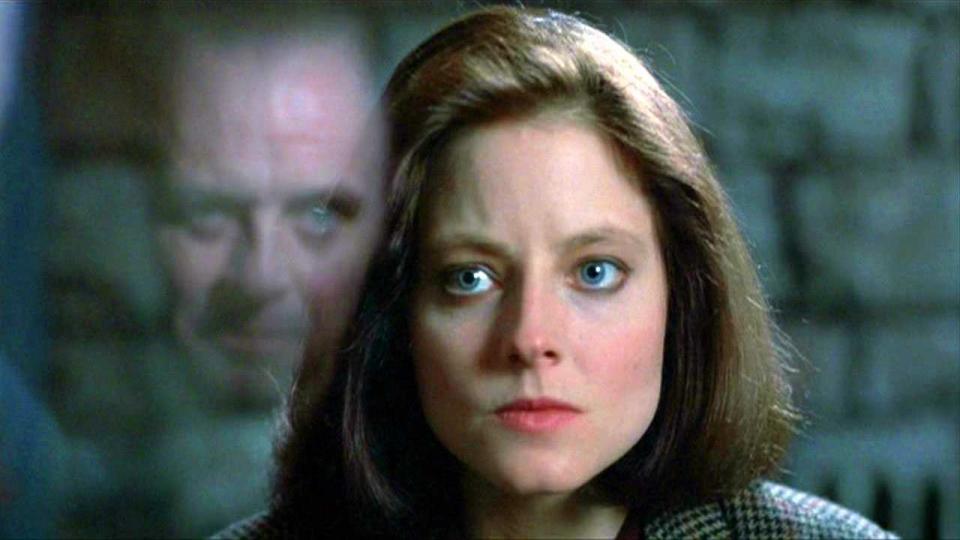Bart & Fleming: Most Competitive Oscar Race Ever; Michael Cieply Isn’t Leaving; Jon Stewart Void

Peter Bart and Mike Fleming Jr. worked together for two decades at Daily Variety. In this weekly column, two old friends get together and grind their axes, mostly on the movie business.
BART: The scenario for this week unfolds the same year-to-year: Too many award wannabes crammed into too little critical space. And too many openings that get up close and personal, with stars and star filmmakers effectively button-holing voters. The sudden deluge of good films is exhilarating; however I always worry about the work that can get lost in the melee.

FLEMING: As he moved the wide release of the Stephen Gaghan-directed Matthew McConaughey-starrer Gold to January 27, Bob Weinstein told me yesterday he exited a December 25 wide bow because he believes there are more quality, awards-caliber adult films that are opening in that Christmas corridor than he has ever seen in his life. I haven’t yet seen Silence, Patriots Day, Live By Night and Passengers, but I’ve watched a bunch of awards contenders and also believe this is the best single year crop I can remember. And they all seem to be opening around the same time. Just like last year, there is a Star Wars film, Rogue One, and this time, add a Harry Potter spinoff to hoover up screens and grosses through the holiday. These films provide a welcome oasis of intelligence after the low-bar presidential elections, but what a challenge for specialty film distributors.
BART: Take Arrival, a prize example of cerebral sci-fi. The set-up: Space ships arriving unannounced, the world on edge. While Steven Spielberg would deliver a charming kid to intercept them, Denis Villeneuve presents us with a brilliant linguist, played by Amy Adams. As Anthony Lane of the New Yorker put it, “The first forty minutes of Arrival consumed me.” Then, things get complicated. And downright existential. Instead of a thrill ride, we get a lot of heavy stuff to figure out. I found Arrival a daring movie, but will it hold its own against the star power in Fences (Denzel Washington), the critical raves for Moonlight, the festival applause of Manchester By The Sea, the sheer audience joy generated by La La Land, or, for that matter, the giant press coverage blanketing Warren Beatty and Rules Don’t Apply? With the stars and the distributors pulling out all the stops, it’s easy to get lost. Potentially being pushed to the background are worthy films like Denial, Loving, Billy Lynn’s Long Halftime Walk, Snowden and Equity. And it’s impossible to predict which film will generate an eleventh-hour sprint – a box office winner like Sully is one possible candidate.
FLEMING: Beyond the ones I already mentioned, you’ve forgotten Hacksaw Ridge, Lion, The Founder, Collateral Beauty, Miss Sloane, Nocturnal Animals, Jackie, Allied, Eye In The Sky, A Monster Calls, Hidden Figures and Hell Or High Water. I am sure I left out a couple, and expect I will hear about it. In a weaker year, many of these and the other named pictures would be favorites for prizes from Best Picture to director, performance and script. On all of them, marketers and distributors need to be clever to make their picture stand above the fray. I have noticed how Amazon and Roadside have cleverly worked producer Matt Damon as the main pitchman in TV ads for Manchester By The Sea, explaining why it, and performances by Casey Affleck and Michelle Williams, are exceptional. That was a bold stroke; I’m surprised spots for Billy Lynn didn’t make an issue out of the groundbreaking cinematic technology that Ang Lee infused in that film. It wouldn’t surprise me if other movies move dates. The lineup of contenders should also get interesting, after Viola Davis tossed her hat into the Best Supporting Actress ring on Fences, and not Best Actress. I saw the movie; she would be hard to beat in either category, but the only other actress with significant screen time is Saniyya Sidney, who I recall is 9 years old. That move certainly shakes up both already-stacked actress categories and you wonder if others will move. For sure, worthy performances won’t make the cut in the Best Actor and Actress categories. We’ve got an exciting, wild ride ahead.
BART: So why the last-minute rush to oblivion? The distributors want it that way, filmmakers complain, because they covet the boost from the award shows. The stars want it that way, complain the distributors. Their egos need awards buzz.

FLEMING: I don’t see that egos have much to do with it. How many movies since The Silence Of The Lambs came out early and then went wire to wire to win Best Picture? Movies that peak too early get forgotten in awards-season races, partly because distributors won’t spend when they’ve realized their revenue cycles. That happened with the July release The Hurt Locker, which won against Avatar, but how many David and Goliath stories are there?
BART: In any event, I was trying to decipher some of the epistemological subtexts of Arrival when invitations to four other screenings and Q&A sessions arrived in my email. This is no time for contemplation.
FLEMING: I want to change the topic to an in-house matter, to set the record straight. A report in The Wrap depicted high drama here and inferred that I clashed with Michael Cieply and that he’s taking a lesser role or is headed out the door. The reporter called me and Cieply to say their sources were certain he is leaving. We denied it, but I guess their sources know more about his exit and “clash” than we did; drama was created where there isn’t any. There is zero truth that I, or Nellie Andreeva, clashed in any way with Cieply. The false narrative is particularly irksome to me; through all my years at Variety and Deadline, there are only a few journalists I truly admired. Cieply has always been at the top of that short list. I’ve marveled at his ethics and meticulous reporting in the short time he has been here, especially when we broke the Nate Parker Birth Of A Nation story. He may want to throttle it down a bit if he so chooses, but Cieply will continue writing for us for as long as he likes.
BART: Next topic. With the Trump Nation taking shape around us, we all desperately need some laughs, so I got angry this week reading a new book about Jon Stewart and The Daily Show. How could Stewart, who we all coddled and embraced for 17 years, have abandoned us when we most needed him? How could any political satirist walk away from a chance to dump on Trump? Reading the newly published The Daily Show: An Oral History by Chris Smith, I’m reminded of the bastion of comic talent that come to the fore in the Stewart era – John Oliver, Steve Carell, Stephen Colbert, Samantha Bee, et al – but Stewart himself pulled a fade. At its moment of inception, the survival of the show itself seemed dubious. All the principals felt they were losers: Stewart had lost a writing job on Letterman and Colbert had flunked a gig as a reporter for Good Morning America. Six weeks into the show, its writers told Stewart that he was ruining their jokes, so Stewart called a meeting and fired them instead. “I’d been blindsided,” Stewart recalls. “It was a flat-out power struggle.” Before long, The Daily Show’s satiric thrusts became accepted as part of the actual landscape. Carell’s questions were responded to by Sen. John McCain as if they were from a credentialed newsman. “That’s when the idea of deconstructing the process came to the fore,” Stewart recalls.

FLEMING: Stewart’s exit was a seismic culture shock for young kids, mine included. They ingested and processed news through Stewart’s remarkable filter, and same for Stephen Colbert, who slyly made his newsy points cloaked as a conservative idiot. When Cieply and I wrote about Brad Grey’s campaign to move Paramount into a post-Philippe Dauman future, we’d heard from Viacom sources that when Stewart told Viacom he would leave at the end of his contract, Grey thought it was unwise and offered to meet with him. Grey grew up managing stand-up comics, and worked with Stewart when the latter appeared in episodes of The Larry Sanders Show, which Grey exec produced. Those sources said Grey believed Stewart was merely burnt out from an all-consuming job. He could take a long sabbatical and come back recharged for the election season. We heard that Viacom told Grey to stand down. It’s amazing to see the results: Stewart left and so did Colbert and Daily Show correspondent Oliver, who now is the closest thing kids have to a conduit for political news, on his HBO show. Amazing that Viacom let Stewart leave, without much of a fight, thinking he had aged beyond that coveted demo. You can’t lose three guys like that and win.
BART: Like other “oral histories,” the one about Daily Show becomes scattered and confusing, but its fragments remind the reader of its remarkable clout. For many of its younger viewers, Stewart’s show became the principal source of news, accepted as reality, not as satire.
FLEMING: Finally, from both of us to our readers and podcast followers, Happy Thanksgiving.
Related stories
Oscars: Academy Lists 10 Live-Action Shorts As Finalists
Oscars: 10 Animated Shorts Make Academy's Shortlist
Get more from Deadline.com: Follow us on Twitter, Facebook, Newsletter

